Photo credit: Àblock!
For several years, Egyptian athletes have been dominating the international squash scene. Despite originating in England in the 19th century, the fast-moving racket sport quickly gained popularity in Egypt. Some credit this to the late Egyptian president Hosny Mubarak’s love of the sport, while others claim it initially spread when squash clubs were first built for British colonial officers stationed in Cairo and Alexandria. Regardless of the reasons behind its rise in popularity, squash soon became one of the rare individual sports followed by millions of Egyptians.
Currently ranked the world’s number one female squash player, 25-year-old Nouran Gohar is a rising star in the Egyptian sports scene and the global squash circuit.
The athlete deservingly gripped a place in this year’s edition of Forbes Middle East’s 30 Under 30, after a successful win of eight out of 12 finals in her 2021/22 season. Gohar became world number one for the first time, the same year she graduated with high honors in construction engineering from the American University in Cairo, at 22 years old.
Egyptian Streets spoke to Nouran Gohar about her introduction to the sport, the successes and downfalls of her career, and the struggles of taking care of her mental health as a professional athlete.
How did you get into squash?
The reason why I started playing squash was because of my dad. My whole family, including my mom and my uncle, were into sports. My uncle used to be a table tennis champion, he went to the Olympics twice, and they were African Arab champions. So it was normal for me to just play table tennis. But my dad used to play squash just for fun with his friends.
Then, one day, I decided to accompany him to court. I used to play gymnastics and swimming before, and I hated both, I didn’t feel like I loved either. . But when I went onto the squash court, I thought that this is where I feel comfortable, and where I want to be spending time.
I was quite old compared to the other kids that started squash. We usually need to start when we’re around five or six years old; I started when I was nine. But I just loved it.
How would you evaluate the sports scene in Egypt, specifically in squash? Many often criticize the sports scene in Egypt, complaining that the focus is usually mainly just on football and never on individual sports. Would you agree with that?
I had to do a research paper and I did it on the way people perceive soccer in comparison with other sports, in general, not only in Egypt. Soccer is taking the whole world’s attention. Squash will never become like soccer because it’s a worldwide thing. But I think, in Egypt, it is getting better, there is more attention towards individual sports, especially the ones that we are good at, like squash. We have a lot of events as well that are being funded by big sponsors, so it is a good time to be playing squash right now in Egypt.
For the last three to five years, it has been really improving. We will definitely never get to the level of soccer, but at least people started to realize that we do have athletes and champions in other sports as well.
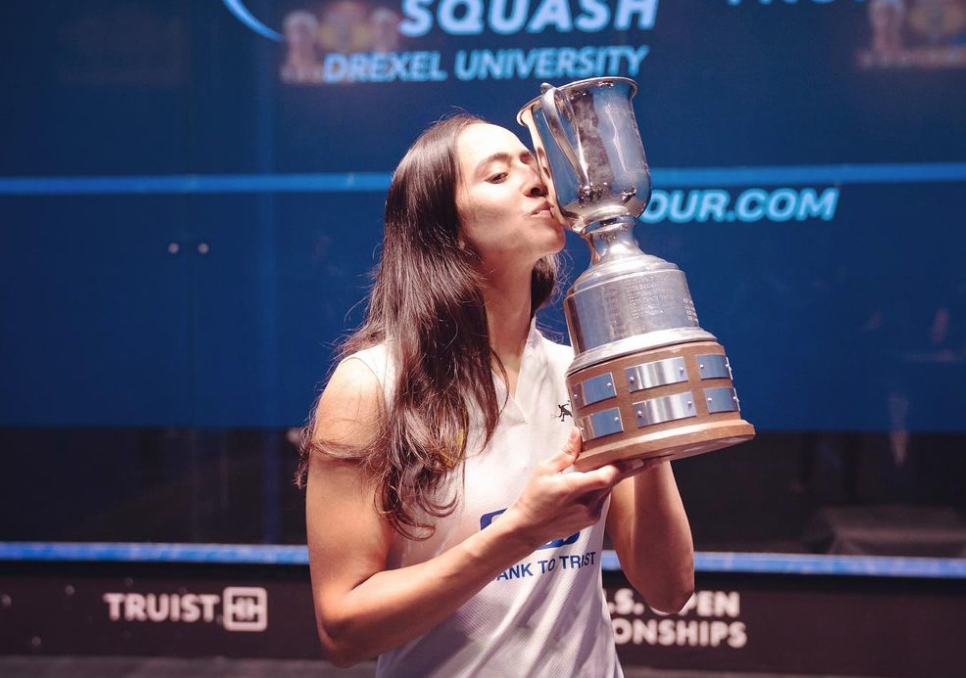
Photo credit: Instagram
What were you looking for when you started playing squash, what were you hoping to achieve? Were you looking to become a professional squash player?
I don’t accept being average in anything. I wanted to be a very good player, actually the top player in my age group. I had to win any tournament that I go to. In general, I’m a very bad loser, I can never accept losing.
At the beginning, I just wanted to compete, get medals, and have a high ranking. But after finishing high school, when I beat my idol, Nicole David, a nine-year world number one and an eight-time world champion, I thought ‘Okay, I might be a good player’. I didn’t just want to go professional and be ranked number eight or nine, I wanted to be the top player. So, if I wasn’t going to be the top player, I was going to stick to my other dream, which was becoming an architect at one of the top schools.
After high school, I couldn’t decide what I wanted.
I won the world junior championship, which is a big achievement for juniors, and I got really good grades in high school. I was offered many scholarships in the US, like Harvard and UPenn, and I was offered scholarships in France, at the best universities where I definitely wanted to study. Another option was pursuing squash professionally. So I was like: What do I choose now? I decided to take a gap year just to decide. Then, when I had the match and beat her, I went from the ninth in the world to the eighth in just two or three months. I considered it a message from God, and decided to turn to squash for now.
Does being a professional athlete affect your mental health?
For sure, 100 percent, although people don’t see it.
From the outside, it looks like we’re having a very cool job: traveling the world and seeing new people. Of course, it’s a blessing to have your job and your passion be the same. But it’s very demanding, both physically and mentally. Some days, you wake up feeling really tired to just go on court.
I’ve been doing this now for 16 years, and there are a lot of sacrifices that people don’t really see. I’ve missed a lot of lifetime events just to be in a tournament or to be competing. When you do the math, it’s 12 tournaments a year, each tournament is nearly 10 days, so it’s like 120 days in a year that I’m away from home, let alone the training sessions. It’s emotionally demanding as well. Sometimes I have breakdowns, it’s hard. It’s not an easy thing to always be away, in addition to the pressure of the matches, it’s far from easy. But some days are better than others.
The key is to know when to stop, when to take it easy, and when to relax a bit. It’s also about understanding priorities, and that life is not only about squash.
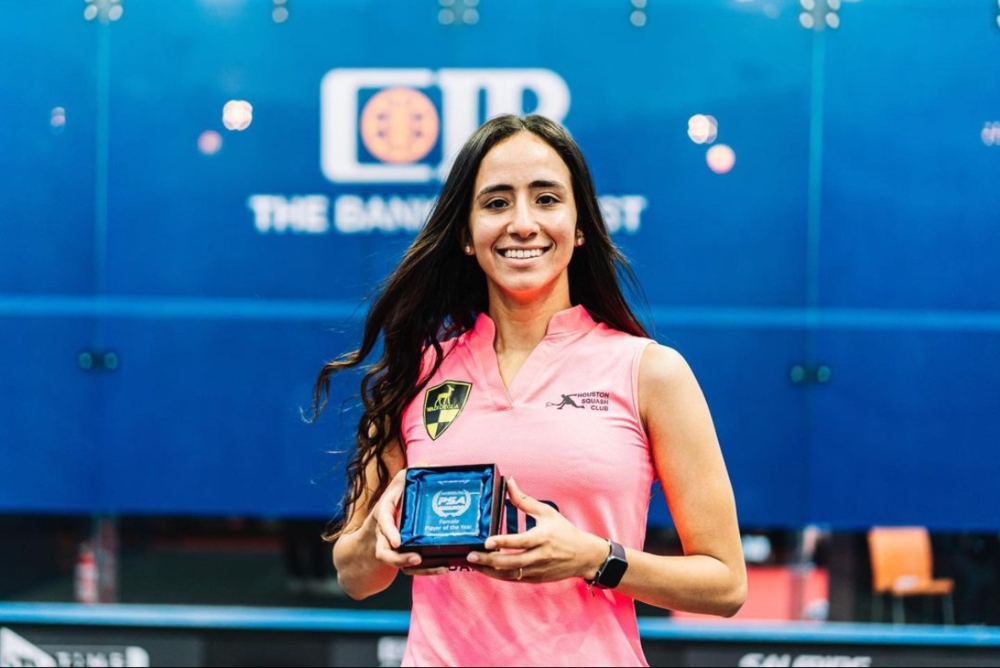
Photo credit: Instagram
Tell us about a time when you reached rock bottom and how did you overcome it?
It was in 2018.
I reached world number two when I was only 19 years old in January 2017. I was very young, and I was beating people who were 34 years old; I was playing really well. I didn’t have anything to lose. Then suddenly, I got several injuries, I started to lose matches that I shouldn’t have lost and things started to get really dark. Since I’m the kind of person who doesn’t accept losing, with so many losses, it got very dark.
In sports, confidence is a very important factor. If you are not confident, you cannot perform well. By the end of the year, I lost the first round in the US Open Squash Championship, and on my way back, I decided that I was taking six months off to reevaluate what I was doing because maybe that was it for me and squash.
What people don’t understand is that in sports when you put in the work, results don’t come straight after, they take some time. Patience is key. With some, it takes years to achieve a goal others can in a matter of weeks, it’s all about who won’t give up. Since I always had results right away, I had to change my mindset and learn to accept that it’s okay that I’m not going to be at the top every time.
When I look back at this journey, I’m very grateful because I used to take it for granted, thinking everything was going to be a piece of cake and that everything would be easy. When I lost my number two spot, and I really wanted it back, I understood how valuable it was.
I learnt that all you have to do is focus on hard and consistent work, the result is going to take care of itself. What I control is my performance in court, so I’m going to do everything to perform well. Winning or losing is out of my hands. It might seem simple, but it wasn’t that simple to accept and act upon. My approach completely changed.
What is one piece of advice that you would give to young athletes?
As cliché as this may sound, if you really want something, just work really hard and God will not let you down.
When I started playing squash, no one believed that I could reach the top ten ranking nationally, not even reaching world ranking. I was old, my body was slim, and I started late. With all these factors, everyone thought it was impossible for me to achieve anything.
Family and friends may push and support you, but if it does not come from deep inside you, no one will do it for you, you have to do it yourself.
Subscribe to the Egyptian Streets’ weekly newsletter! Catch up on the latest news, arts & culture headlines, exclusive features and more stories that matter, delivered straight to your inbox by clicking here.
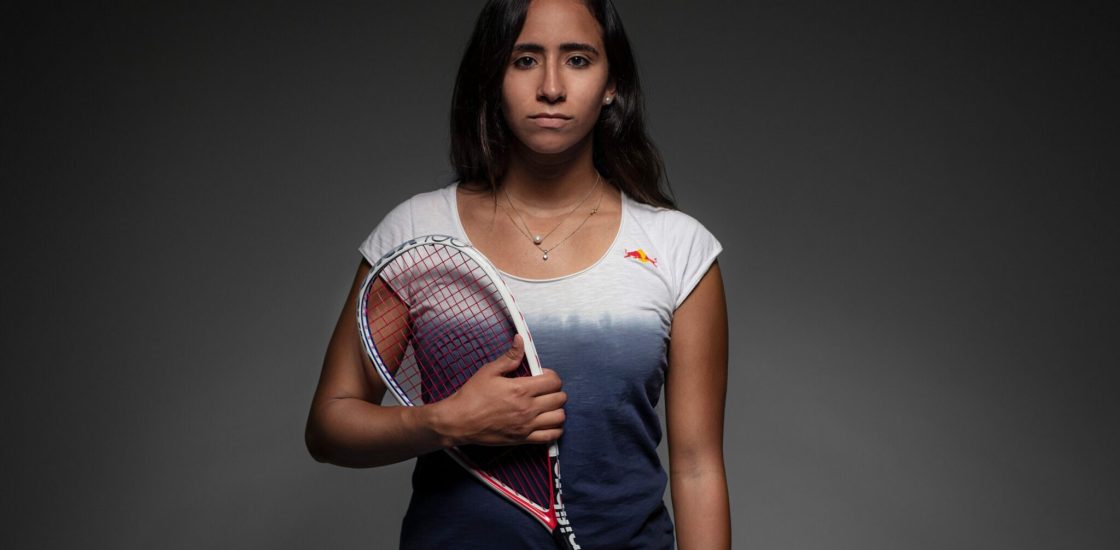



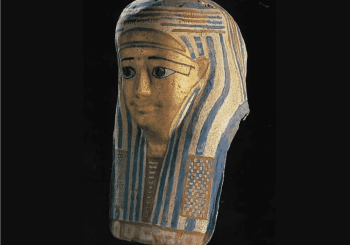
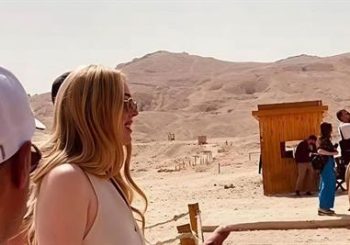

Comments (0)